1989
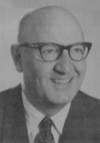
John Herchenroeder became nation’s first news ombudsman at the Courier-Journal and the Louisville Times in 1967. He was named to the position within weeks after the New York Times had suggested that the nation’s newspapers needed a readers’ representative to investigate complaints. Herchenroeder handled 3,000 calls annually from readers with complaints or suggestions about news coverage and he instituted daily correction columns in both papers. Herchenroeder spent his entire 53-year newspaper career at the Louisville newspapers, starting in 1926 and he served in nearly every news capacity at the Courier-Journal, including 20 years as city editor. During his career, he covered major news events such as national depression, Kentucky bank failures and many significant metropolitan stories. Native of Louisville, Herchenroeder graduated from Male High School and attended University of Louisville. He was a strong supporter of Male High and Boy Scouts activities. Herchenroeder retired in 1979. He died in 1994.
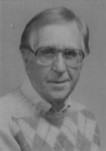
Milton Metz is a veteran broadcast personality at WHAS-Radio and WHAS-TV in Louisville. In 1959, he created the “Metz Here” public opinion phone-in program on WHAS-Radio, the longest-running show on Louisville radio, one of the oldest in the country. The top-rated program draws calls from 40 states and Canada. Has been with the radio station for 40 years. With WHAS-TV, he co-hosted and co-produced “Omelet,” a talk and interview program for nine years and was the Channel 11 weatherman for 19 years. He was awarded a Ford Foundation grant to the United Nations to work in radio, television and film. Metz went on to receive the top radio award from American Psychiatric Association. Metz started his radio career in his hometown of Cleveland following graduation from The Ohio State University. He was active in his community and participated in charitable events.
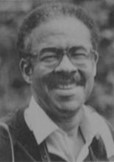
Moneta J. Sleet Jr. was the first black American to win a Pulitzer Prize for photography, in 1969, for a memorable photo of Coretta Scott King at her husband’s funeral. Sleet is a native of Owensboro and graduated cum laude from Kentucky State College. She obtained a master’s degree in journalism from New York University in the School of Modern Photography. She spent the early part of her career at Our World magazine. Since 1955, she served as staff photographer for Johnson Publishing Co., publishers of Ebony, Jet, and EM Magazine. She traveled throughout the world for Ebony—numerous trips to Africa, as well as Europe, Russia, South America, and the West Indies. Sleet photographed civil rights marchers in Selma, Alabama, the March on Washington and chronicled African independence and the life of Dr. Martin Luther King, Jr.; these works were displayed and exhibited nationwide (1986-1987). Her work was also featured at the Martin Luther King Memorial Library in 1988. Sleet was cited for excellence by Overseas Press Club in 1957.
1988
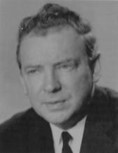
John F. Day was a metropolitan newspaper and national broadcast executive. He graduated Cum Laude from the University of Kentucky where he edited the Kentucky Kernel the year it was named the nation’s best college newspaper. He received early journalism experience at the Lexington Leader and the Associated Press in Huntington. Day wrote Bloody Ground, a non-fiction book about life in Eastern Kentucky in 1941. He was also named Nieman Fellow in 1942. He headed central news desk of Office of War Information. He then worked at the Cleveland Press, followed by managing editor of the Dayton Daily News before joining the Courier-Journal in 1948 as Washington correspondent; he received the Reid Fellowship in 1951 and traveled in Europe for the paper. He was named managing editor in 1952. In 1955, Day joined CBS, Inc. as top news executive, where he served for six years and directed two Emmy award-winning documentaries. He later worked for Time-Life Broadcast in London. In 1964, he bought a partnership in the Exmouth Journal, a weekly newspaper in England. Day was named to University of Kentucky’s Hall of Distinguished Alumni, initiated as distinguished alumnus into Phi Beta Kappa and gave the Joe Creason Lecture at UK in 1980. John F. Day died on April 10, 1982.
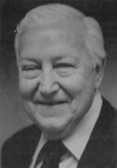
George Hackett is a veteran Associated Press newsman who has spent entire 44-year career with wire service in Kentucky. Following Army service, he joined AP as wirephoto operator in 1944. Hackett later became a radio news writer. He was appointed news editor for AP in Kentucky in 1955 and directed on-site coverage of an integration dispute which brought National Guard to Clay and Sturgis. He also directed coverage of the 1959 school bus disaster in Prestonsburg which killed 27 people. Hackett scored a 15-minute worldwide beat of disqualification of Dancer’s Image following 1968 Derby. He also covered Kentucky General Assembly, coalfields of Eastern Kentucky, 35 Derbies and NCAA Final Four. In 1970 he was named enterprise editor and started writing a weekly column in 1977 on unusual people and places. He trained scores of young journalists who gained success with AP and with various newspapers. Hackett received Distinguished Service Award from Western Kentucky University’s chapter of Society of Professional Journalists, Sigma Delta Chi in 1982 as well as the Kentucky Human Service Award from Kentucky Cabinet for Human Resources in 1984. Hackett is a native of Louisville and attended the University of Louisville.
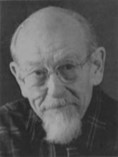
Ralph E. Johnson was a photographer, reporter, and editor for the Associated Press for 26 years. He graduated from the University of Kentucky in 1937. Johnson’s early career included a position as reporter-photographer for the Frankfort State Journal, and five years as free-lance photographer in Frankfort for various state newspapers, as well as the AP and Time-Life. He joined the Associated Press as a photo editor in New York City in 1943. Johnson later moved to Atlanta to head photo operations in southeast U.S. for 10 years and he organized Atlanta Press Photographers Association. He transferred to the Boston office of AP in 1955 as reporter-editor and served 14 years in this position. Johnson did some free-lance work in Massachusetts before joining the University of Kentucky School of Journalism in 1974 to establish a photojournalism curriculum; he also taught news writing until retirement in 1980. Johnson rejoined School of Journalism staff on a part-time basis in 1988. Ralph E. Johnson died in 1991.
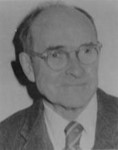
Bennett Roach was the editor and publisher for the Shelby News from 1941 to 1960. Roach was a native of Lawrenceburg and graduated from Transylvania University. He started his newspaper career in 1924 with Kentucky Standard in Bardstown; he later worked for various daily newspapers including New Rochelle, N.Y., Standard-Star,Beckley Post-Herald, and the Associated Press in Detroit. Roach joined the Courier-Journal in 1933, serving in various news capacities until he sought interest in the Shelbyville paper in 1941. Roach wrote weekly columns following his retirement; he also wrote stories for 200 newspapers and 100 radio stations in five-state area for Burley Tobacco Growers Cooperative. Roach became President of the Kentucky Press Association in 1952; he led the fight in General Assembly for stronger legal publications legislation. Roach was an avid historian and painter. He is also active in Presbyterian Church, Rotary, and Filson Club.
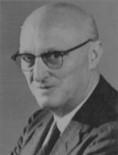
Earl Ruby served as sports editor of the Courier-Journal for 30 years. He started with the newspaper in 1921 as an office boy; he continues to write an outdoor column. He served in the sports department for 44 years until retirement from a full-time position in 1969. Ruby started “Ruby’s Report,” a daily sports column, in 1936; he wrote 10,000 daily columns. At the time of his retirement, more of his articles had been selected for the annual anthology, Best Sports Stories, than those of any other writer. Ruby won National Headliner Award in 1945; and was named Sportsman of the Year in 1969 by League of Kentucky Sportsmen. He received other national recognitions during his career; he was named Kentucky Goodwill ambassador to Olympics in London, Rome and Mexico City. Ruby traveled in Europe, Latin America and Canada covering sports. He made more than 2,500 speeches during career. He is widely quoted and reprinted nationally. Ruby is also the founder of the Kentucky Derby Festival and Kentucky Athletic Hall of Fame. Ruby is an avid hunter and fisherman.
1987
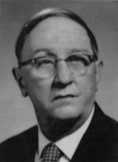
Fred J. Burkhard was an editor, publisher and contributing editorialist for the Casey County News for 40 years. He was a strong advocate of open meetings and open records in the community. He graduated from Berea College, where he served as student pressman and typographer while attending high school and college; he was named Distinguished Alumnus in 1973. Burkhard started his career as a printer and teacher of printing. He bought Casey County News in 1947, and increased circulation from 2,200 to 6,200. He advocated economic, social, and educational progress in Liberty and Casey County. He encouraged scores of local students to pursue college education, served as deputy coroner for 26 years without pay, was elected to Liberty City Council for two terms, and became charter president of the Liberty Kiwanis Club. He served on the board of directors and as president of Berea College Alumni Association Burkhard became president of the Kentucky Press Association in 1963. After retirement from a fulltime newspaper career, an area daily paper editorialized, “He was not only the editor and publisher of Casey County . . . he was the servant.”
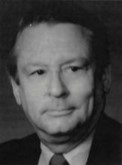
David Dick had a distinguished career with CBS News as radio and television news reporter from 1966 to 1985. He was based in Washington, Atlanta, Caracas, and Dallas; he covered the Jonestown massacre in Guyana, political and economic developments in South America, the civil war in Nicaragua and El Salvador and the invasion of Falkland Islands. He also covered three presidential campaigns of George Wallace, four national political conventions, the White House during Johnson, Nixon administrations, and other Washington assignments. Dick received an Emmy award for coverage of the shooting of Governor George Wallace in 1972. Dick also received the Press Club of Dallas “Katie” Award for best television feature story in 1980, Kentucky Broadcasters Association Distinguished Kentuckian Award in 1974, and the UK School of Journalism Award for Outstanding Contributions in 1978. Dick delivered the seventh annual Joe Creason Lecture at the University of Kentucky in 1984. He received B.A. and M.A. degrees from UK; he joined WHAS in 1959, serving in various news capacities. He is a native of Bourbon County. Dick became associate professor of the UK School of Journalism in July 1985.
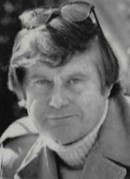
High Haynie was an editorial cartoonist for the Courier-Journal since 1958. He was named one of Ten Outstanding Young Men of the nation by U.S. Junior Chamber of Commerce in 1962. He received the Headliner Award in 1966, Freedoms Foundation Medal in 1966 and 1970, and the Sigma Delta Chi Distinguished Service Award and Bronze Medallion in 1971. Haynie received the Alumni Medallion for service and loyalty to his alma mater, The College of William and Mary in 1977. He was named Civil Libertarian of the Year by Kentucky Civil Liberties Union in 1978. He was a past member of the Board of Directors for the Society of Alumni at The College of William and Mary. Haynie is listed in various editions of Who’s Who. His book Hugh Haynie: Perspective, book of selected cartoons was published in 1974. He is a native of Virginia and received an A.B. from The College of William and Mary and a L.H.D. from the University of Louisville. He had an early newspaper career with Richmond Times-Dispatch, Greensboro Daily News, and the Atlanta Journal. Haynie served in the U.S. Coast Guard, 1944-46 and 1951-52, in the Pacific and Atlantic; he retired as a Lieutenant.
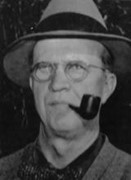
Allan M. Trout was a legendary Frankfort correspondent and Folk columnist for the Courier-Journal where he worked for 39 years. He covered 15 regular sessions of the General Assembly and 75 primary and general elections. Trout wrote 8,998 daily columns entitled, “Greetings,” containing more than 5 million words. He claimed he expressed “the plain man’s bewilderment at the complicated mess society is in. I am the articulate spokesman of a great many people who wonder where in hell we’re headed for.” He was a noted expert on Kentucky constitution and state government. Trout began his 50-year newspaper career in his native Tennessee area after he graduated from Georgetown College. He once owned weekly Jackson Times. Trout won honorable mention Pulitzer Prize in 1932; was named distinguished alumnus at Georgetown College; received the Governors Medallion for distinguished public service twice; named dean of the Senate in 1962; and served a four-year term on the State Board of Education after retirement. He was a combination of folk writer and scholarly reporter. Allan M. Trout died on December 8, 1972.
1986
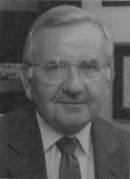
Creed Black has been the chairman and publisher for the Lexington Herald-Leader since 1977. Native of Harlan, Black started his newspaper career at age 17 as a reporter on Paducah Sun-Democrat. He served with the 100th Division in Germany during World War II and received a Bronze Star for heroism; he worked on Stars and Stripes. He was a graduate from the Medill School of Journalism at Northwestern University, with honors in political science. He earned his master’s degree in political science from the University of Chicago. Black worked on copy desks of Chicago Sun-Times and Chicago Herald-American. He was an editorial writer and executive editor of the Nashville Tennessean, vice president and executive editor of the Savannah Morning News and Evening Press, vice president and executive editor of the Wilmington Morning News and Evening Journal, managing editor and executive editor of the Chicago Daily News, vice president and editor of the Philadelphia Inquirer, and Assistant Secretary of The U.S. Department of Health, Education and Welfare during the Nixon administration. Black is the former president of the National Conference of Editorial Writers and American Society of Newspaper Editors from 1983 to 1984. He is also a former member of the board of directors for SNPA; and he is currently treasurer of the SNPA Foundation. Black served as Pulitzer juror five times. He received the alumni medal from Northwestern University in 1973 for “outstanding achievement.”
Tom and Pat Gish are owners of the Mountain Eagle at Whitesburg, which they purchased 30 years ago. They are both graduates of the University of Kentucky; Tom is a native of Letcher County. Pat is a former reporter for the Lexington Leader; Tom is a former Frankfort bureau chief of the United Press International and president of the Capitol Press Club. The Mountain Eagle, under Gish influence, provides a powerful editorial voice in Letcher County and eastern Kentucky, which aims to attack wrongdoing by the Letcher County Fiscal Court, local school board, state and local officials, and the strip-mining industry. The newspaper offices were burned in 1974 in a deliberately-set fire; the newspaper continued from the Gish home. The crusading newspaper has attracted international attention, received an award from the University of Kentucky, and received recognition from National Press Club. Tom Gish received the John Peter Zenger Award for freedom of the press in 1975 and was named Kentucky’s public citizen of the year in 1978 by the Kentucky chapter of the National Association of Social Workers. Pat Gish served as director of the Eastern Kentucky Housing Development Corporation.
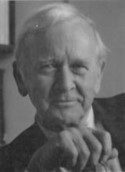
John Ed Pearce is a Columnist and writer for the Courier–Journal magazine. He is a graduate from the University of Kentucky; he also pursued graduate work at Columbia University and Harvard University, where he was a Nieman Fellow in 1958. Pearce started his journalism career as a reporter for Time-Life and United Press, he later edited the Somerset Journal. He joined the Courier-Journal as associate editor and editorial writer. He shared in the Pulitzer Prize won in 1967 by the Courier-Journal for its successful fight for stronger strip-mining controls. Pearce was awarded the Governor’s Medallion for public service in conservation, won the National Headliner Award, the Meeman Award, three awards from National Bar Association, and the Freedom Foundation Award. He was named Outstanding Kentucky Journalist in 1985 by the Society of Professional Journalists/Sigma Delta Chi. Pearce published numerous articles and short stories for national magazines, a novel, a volume of history and several television plays. He served as adviser and speechwriter for four Kentucky governors and served as chairman to the State Oral History Commission. He was a Navy veteran in World War II and retired as commander.
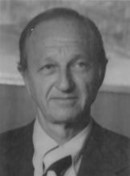
O. Leonard Press has served as the executive director of the Kentucky Authority for Educational Television since 1963. He has also been Interim director for newly-created Broadcast Facilities Program for the U.S. Office of Education in 1963; head of the Department of Radio, Television, Films, and director of broadcasting service at the University of Kentucky from 1958 to 1963; consultant for national educational radio and television; former instructor at the Boston Center for Continuing Education and Emerson College; Chairman at the National Association of Educational Broadcasters in 1973; former vice-chairman of the National Association of Public Television Stations; chairman for the Public Television Managers Council in 1972; and former chairman of the Southern Educational Communications Association. He is active in various other public and educational television groups. He is also a Board member for the Agency for Instructional Telecommunications.
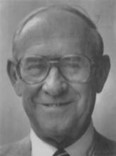
David B. Whitaker served as Head of the Department of Journalism at Western Kentucky University from its inception in 1977 until his retirement from that position in 1984. He continues as professor in the department. Whitaker joined Western in 1970 as coordinator of news-editorial sequence; he was named distinguished Business Advisor in 1973 by the National Council of College Publications Advisers. He is noted for establishment of journalism department at Western, bringing quality instructors to the school, eliminating debt of student newspaper, College Heights Herald, and guiding it to national prominence as winner of three national and two regional Pacemaker awards. Whitaker was named WKU outstanding professor in 1978 by Phi Eta Sigma, freshman scholastic honorary; honored in 1977 and 1984 by the student chapter of Society of Professional Journalists/Sigma Delta Chi; and former president of the Kentucky Council for Education in Journalism. He gained accreditation for Western’s journalism program. Whitaker is a former sportswriter and slot man for the Courier-Journal, and copy editor for the Louisville Times. In addition to being the former city editor of the Park City Daily News. He received a B.A. and M.A. from Western Kentucky University.
1985
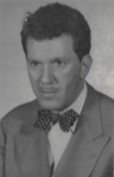
Ollie M. James was the former chief editorial writer and humor columnist for the Cincinnati Enquirer. He is a native of Kuttawa in Lyon County and attended the University of Louisville as well as. The University of Kentucky. He started his journalism career with the Lexington Herald. James later worked as a political writer and Washington correspondent for the Louisville Herald-Post, before joining the Enquirer in 1936 as editorial writer and assistant managing editor. He became chief editorial writer in 1944. He is perhaps best known for his humorous column, “The Innocent Bystander,” which appeared seven times a week for 30 years, beginning in 1940. The column contained sage political advice and practical observations on human nature, it gained great popularity throughout Southern Ohio and Northern Kentucky. He covered numerous national political conventions. James hosted a radio show in the Cincinnati area. He was also noted as after-dinner speaker and storyteller. James received the Ohio Governor’s Award from Governor James Rhodes in 1969, which is the state’s highest honor for outstanding service. Ollie M. James died on January 26, 1972.
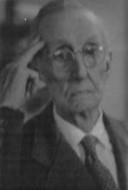
J.S. Moran served as editor emeritus of the Springfield Sun, which he purchased nearly 69 years ago. At the age of 97, Moran is the nation’s oldest working journalist. He continues to write an award-winning weekly column, “Through My Bifocals,” widely read in Washington County. Moran received the first Outstanding Citizen of the Year award in 1965 from the Springfield-Washington County Chamber of Commerce. As chairman of the local Red Cross chapter, he directed the care of 400 refugees from the flood in Louisville in 1937. Moran is a former member of the Springfield Board of Education; served three two-year terms for the advisory council for St. Catherine College; was named Writer of the Year in 1969 by Kentucky Farm Bureau; served as correspondent reporter for the Louisville Herald-Post and the Courier-Journal; was Associated Press representative in Central Kentucky; a member of the Springfield Lions Club for 26 years; and part of the Springfield Masonic Lodge for 40 years. He was instrumental in having Ky. Route 555 constructed from Bluegrass Parkway to Springfield.Moran is also a strong supporter of a proposed Camp Ground Reservoir. He once wrote: “It’s not the high cost of living that’s damaged this country, it’s the cost of high living.”
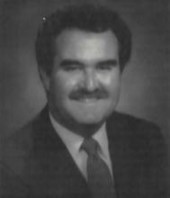
William L. Stakelin has been president and chief executive officer of the Radio Advertising Bureau, since 1983. He started his broadcast career in 1956 as a high school student at WAXU Radio in his hometown of Georgetown. Following his graduation from Georgetown College in 1965, Stakelin joined Bluegrass Broadcasting in Lexington as program manager of WVLK AM-FM, later becoming station manager and vice president and general manager. After becoming chief executive of WHOO AM-FM in Orlando, Stakelin was promoted to executive vice president of Bluegrass Broadcasting Group, and became responsible for radio and television properties in Kentucky, Georgia and Florida. He was the youngest person to become chairman of the board of National Association of Broadcasters, the highest elected position in American broadcasting, in 1982. Stakelin is active in industry and community affairs, served on the board of Florida Association of Broadcasters, president of ABC Radio Network Affiliates Board, and on Broadcast Industry Council to Improve American Productivity. Stakelin was elected to the Board of Directors of Broadcast Pioneers in 1984. He is a strong advocate of radio news coverage, use of mobile news vans, and traffic information provided by airplanes and helicopters.
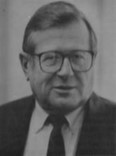
Roy Steinfort is vice president and director of broadcast services for the Associated Press. He is a native of Covington and is a graduate of the University of Kentucky. He started his career as a reporter for the Courier-Journal. Steinfort later served as the UK sports publicity director under Coach Bear Bryant before joining the AP in New Orleans, where he covered Kefauver crime hearings and the Louisiana legislature when Earl Long was governor. In 1953, he purchased the Aberdeen Examiner, which was selected as Mississippi’s best weekly newspaper three times. He learned to fly while in Aberdeen. Steinfort rejoined AP in 1961 to sell its broadcast wire to stations in Ohio, Pennsylvania, New Jersey, and Delaware. He moved to New York in 1964 to accept responsibility for AP’s relations with major broadcast groups. He also started AP’s non-commercial news network which today has over a thousand affiliate stations. He notably hired the first female executive for AP. Steinfort currently directs news distribution to broadcast affiliates and strongly supported the start-up of high-speed service to both radio and television stations. He directed the completion of AP’s new broadcast facility in Washington. Steinfort assumed current responsibilities in 1975 and was elected vice president two years later.
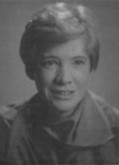
Carol Sutton was the first female managing editor of a major metropolitan newspaper, the Courier-Journal from 1974-1976. She was named one of its Women of the Year by Time Magazine in 1976. From J.C. Penney—University of Missouri, she received top award for excellence in editing, and top fashion reporting award for exposing the acceptance of gifts by writers covering New York’s fashion scene, a practice now considered unethical. While she was managing editor, the Courier-Journal won Sigma Delta Chi and Roy Howard awards for public service for coverage of school desegregation in Louisville. She was the Leader in recruitment of minority professionals. Sutton was a frequent discussion leader at American Press Institute; chairman of Pulitzer Prize juries in 1975 and 1976; a member of Nieman Fellows selection committee in 1976; a former member of the Great Lakes District and Kentucky selection committees for Rhodes Scholars; and an adviser to Presstime. Native to St. Louis, Sutton graduated from the University of Missouri School of Journalism and joined the Courier-Journal in 1955. She was senior editor for the news administration, the Courier-Journal, and the Louisville Times. Carol Sutton died February 19, 1985.
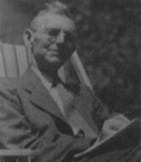
Nehemiah M. Webb is the founder of the Mountain Eagle in Whitesburg, Letcher County, in 1903, at a time when 24 contiguous head-water counties in Eastern Kentucky had no printing press. He was born on a mountain farm in 1865, and attended a log cabin school learning land surveying. Webb taught school for several years. He struggled against terrible odds to start his paper in an area where most people were illiterate, roads were nearly impassable and travel was mainly by horseback. Webb once commented, “I started life as a poor farmer, became a poor surveyor and then a poor school teacher, and now I am a poor newspaperman!” He was the first Kentucky mountain journalist to have a photograph displayed in the Library of Congress. Webb served eight years as postmaster of Whitesburg during the terms of President Woodrow Wilson. He is credited with helping improve economic and educational conditions in Letcher County, especially after the opening of coal fields and coming of railroad in 1912. Webb started the Neon News around 1926. He continued to write for papers after reorganization forced by bankruptcy during the depression. Nehemiah M. Webb died July on 30, 1945.
1984
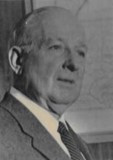
Mark F. Ethridge served in top management positions at the Courier-Journal and the Louisville Times for 27 years, between 1936 and 1963; a period when the Louisville newspapers achieved significant national recognition. He was general manager, vice president, publisher, and chairman of the board. After retirement in Louisville, Ethridge was editor of Newsday for two years; he taught journalism at the University of North Carolina. Ethridge is a native of Mississippi and started newspaper work after high school as a writer for the Meridian Star. He went to Georgia in 1915 as reporter on the Columbus Enquirer-Sun; he then served at the Macon Telegraph as city editor, managing and associate editor before becoming general manager and publisher of the Richmond Times-Dispatch. After World War II, Ethridge was assigned by the State Department to study the governments of Romania and Bulgaria and to investigate Greek border disorders. He became chairman of the U.S. Advisory Commission on Information and Fair Employment Practice Commission; President of the National Association of Broadcasters in 1938; vice president and director of the Associated Press between 1950 and 1960; and a trustee of the Ford Foundation. Ethridge was honored by the National Association of Radio and Television Broadcasters and Columbia University. He has six honorary degrees. Mark F. Ethridge died on April 5, 1981.
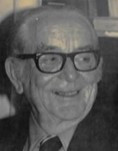
J. A. McCauley was a journalism professor at University of Kentucky for 30 years between 1946 and 1976. He started his journalism career as editor of Cynthiana Democrat and Central Record, Lancaster, following seven years as a high school teacher. McCauley became a reporter for the Lexington Herald in 1942; he was editorial writer for 20 years. He joined the UK Department of Journalism staff in 1946 and later served as associate chairman. McCauley directed the Kentucky High School Press Clinic, founded and served as executive secretary for the Kentucky Council for Education in Journalism, and founded Henry Watterson Press Club, which obtained Sigma Delta Chi charter. He advised student journalism groups and student publications. He was a coauthor of Learning About Mass Communications in 1972, Modern Journalism in 1962, and edited News Manual and Stylebook in 1964. McCauley completed a journalism degree from the University of Missouri in 1930 and obtained a Master of Arts at the University of Kentucky in 1948. He is listed in Who’s Who in American Education.
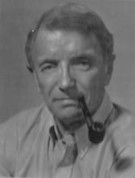
Sy Ramsey was a State Capitol correspondent for the Associated Press for 21 years between 1962 and 1983, spanning the administrations of six governors. He was hailed by government leaders and fellow newsmen for fairness and accuracy. Ramsey is a native of New York, and a graduate from the University of Oklahoma. He worked for newspapers in Oklahoma, Arkansas and Mississippi before joining AP in Little Rock in 1956, later covering school desegregation. Ramsey transferred to the AP Louisville bureau in 1958. He covered presidential conventions for AP in 1964, 1968, 1972 and 1976. Ramsey served as president of Capitol Press Club and wrote a weekly statehouse column for AP members. He also appeared frequently on Kentucky Educational Television’s weekly “Comment on Kentucky” program, focusing on government events. Sy Ramsey died on October 26, 1983.
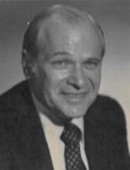
William J. Small has been president since 1982 of United Press International, the world’s largest independently owned news service. After receiving Master of Arts in social services from University of Chicago in 1951, he started his journalistic career as news director of WLS Radio in Chicago. Small served as news director of WHAS-Radio and WHAS-TV in Louisville between 1956 and 1962, winning numerous awards and bringing the station to position of news eminence. He served at CBS News for 17 years beginning in 1962 as the chief of Washington bureau; Small later was senior vice president, director of news, and vice president of Washington, CBS, Inc. He became president of NBC News in 1979. He is author of two books, To Kill A Messenger and Television and the Real World and Political Power of the Press. Both books won distinguished service awards form the Society of Professional Journalists, Sigma Delta Chi, of which he served as president in 1974 and from which he received the group’s highest award in 1979. Small received the Madison Award for his work on behalf of the First Amendment in 1983. He was president of the Radio-Television News Directors Association in 1960 and received the association’s top award. He is the winner of the National Headliner Award.
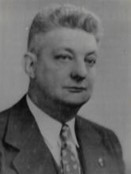
Thomas R. Underwood is an editor and state Democratic leader. He started his newspaper career while in high school in Hopkinsville. Underwood joined the Lexington Herald as reporter in 1916; he later served as city editor, managing editor and general manager. He became the paper’s second editor in 1935. Underwood is a devotee of the thoroughbred industry; he wrote a turf column for the Herald; helped form the National Association of State Racing Commissioners; served as secretary for 14 years; and served 16 years as secretary of Kentucky State Racing Commission. Underwood edited Thoroughbred Racing and Breeding and co-authored a humorous book, Call Me Horse. He was active in Democratic politics and served as chairman of party’s state executive committee and in various other capacities. Underwood was elected to the U.S. House of Representatives in 1948 and was re-elected in 1950. Underwood was appointed to U.S. Senator in 1951. He was also a noted after dinner speaker. Underwood served as president of the Kentucky Press Association, Lexington Board of Commerce, Lexington Optimist Club, and Blue Grass Automobile Club. He has an honorary Degree from the University of Kentucky and was named to UK Hall of Distinguished Alumni. Thomas R. Underwood died on June 29, 1956.
1983
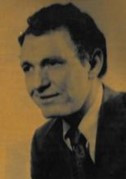
John Mack Carter is the only person who has been editor of all three of America’s most influential women’s magazines—Good Housekeeping, Ladies’ Home Journal and McCall’s. He is a native of Murray and worked at Murray Ledger & Times while attending Murray State University; he graduated with master’s degree in journalism from University of Missouri. Carter received the Walter Williams Award for Writing from Sigma Delta Chi in 1949; he was named one of the “Ten Outstanding Young Men of the Year” in 1963 by U.S. Junior Chamber of Commerce; honored as “Publisher of the Year” in 1977 by Brandeis University; “Headliner of the Year” by Women in Communications, Inc. in 1978; and the Missouri Honor Award for Distinguished Service in Journalism in 1979. Carter received a honorary Doctor of Letters degree from Murray State University in 1971. He was appointed to various national commissions by Presidents Kennedy, Johnson, Ford, and Carter. Carter serves on the boards of numerous national charitable organizations. He now serves as editor-in-chief of Good Housekeeping and director of new magazine development for the Hearst Corporation.
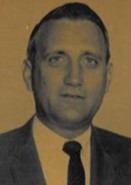
J.B. Faulconer started his journalism career as radio sportscaster on station WLAP in Lexington in 1940 following graduation from the University of Kentucky. He established the South’s largest regional sports network for broadcast of UK football and basketball games. Faulconer served as Infantry commander during World War II; he received battlefield promotion to lieutenant colonel at age 26 and was awarded Legion of Merit and the Bronze Star for Valor. Faulconer was commanding general of the 100th Division between 1970 and 1973; he retired as major general from the U.S. Army Reserve. Faulconer became public relations director of the Keeneland Association in 1955. He is also author of Racing in the Finest Tradition. He is a distinguished alumnus of UK and was named Outstanding Young Man of Lexington and Kentucky by local and state Junior Chambers of Commerce. In addition, he was named executive vice president and director of Thoroughbred Racing Associations of North America, Inc., Master of ceremonies, and later executive producer of the Eclipse Awards. Faulconer is active in civic and Thoroughbred racing organizations.
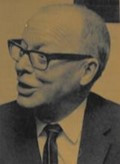
A.B. Guthrie received the Pulitzer Prize for literature in 1950 for his novel, The Way West. He is a native of Bedford, Indiana, but grew up in Montana, and has joined the Lexington Leader as a reporter in 1926. He later became city editor and executive editor before resigning in 1947 to devote full time to writing. Guthrie was a Nieman Fellow between 1944 and 1945. As an editor, he campaigned to rid Lexington of outside toilets, investigated mistreatment of patients at Eastern State Hospital which resulted in dismissal of hospital management, and helped stop the sale of raw milk in the city. Guthrie taught writing at the University of Kentucky. He moved back to Montana in 1953. Guthrie wrote numerous Western novels, including The Big Sky, These Thousand Hills, Arfive, The Last Valley, and Fair Land. Guthrie also wrote other books, articles and screenplays.
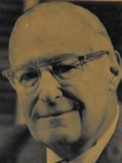
Arthur Krock is the only person to receive three Pulitzer Prizes and a special Pulitzer citation for outstanding reporting. Native of Glasgow, Kentucky, Krock started his career as a cub reporter on the Louisville Herald in 1906; he later became the Washington correspondent for the Louisville Times in 1910 and a year later also began writing for the Courier-Journal; he became editorial director for both Louisville papers in 1915 and was editor-in-chief of the Times when he left Louisville in 1923. Krock closely associated with Henry Watterson in Louisville; he compiled a book The Editorials of Henry Watterson, after Watterson’s death. He worked for the New York World as assistant to publisher before joining the New York Times in 1927 and he became the head of the Washington Bureau in 1932. He was the author of the column, “In the Nation, “ for 32 years before his retirement in 1966. Krock’s career spanned the activities of 11 presidents and American involvement in four major wars. He was highly respected by those he covered and worked with, and was hailed as one of the most influential American journalists of his time. Krock widely traveled at home and abroad, and held honorary degrees from Princeton University, University of Kentucky, University of Louisville and Centre College. He received the Medal of Freedom, the highest U.S. recognition to a civilian, in 1970. Arthur Krock died on April 12, 1974.
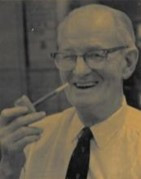
Victor R. Portmann was a journalism professor at University of Kentucky for 39 years. He was the first secretary-manager of Kentucky Press Association, a position held for 24 years. Native of Minnesota, Portmann started his journalism career in 1911 on a weekly newspaper owned by his father. He was a World War I combat veteran. Portmann was acting head of the journalism department at University of Arkansas before coming to UK in 1927, where he specialized in teaching community journalism. He helped reorganize the Kentucky Press Association in 1941, established permanent headquarters at UK, helped start Kentucky Press Service and the Kentucky Journalism Foundation. Portmann served as president of Newspaper Association Managers in 1951 and 1952; he also served on the board of directors of the National Newspaper Association. Portmann is active in Oleika Shrine Temple in Lexington. He served as editor of lodge publication for 20 years. Victor R. Portmann died on October 16,1981.
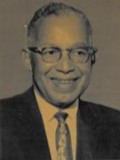
Frank L. Stanley, Sr. was a publisher, educator, and civil rights leader. He headed the English department at Jackson State College and Louisville Central High School; he was also a football and basketball coach. Stanley started his journalism career as a reporter for the Louisville Defender in 1930; later became owner and publisher. He is the co-founder of the National Newspaper Publishers Association; and he served as president five times. Stanley won more than 35 national awards in journalism, including the President’s Secret Service Award of the NNPA in 1970 and the Wendell Willkie Award for Public Service, presented by President Truman. He received an honorary doctorate from Allen University and citation from Lincoln University for outstanding journalism. Stanley drafted legislation in 1950 that led to integration of state’s public universities; he also wrote the bill creating the Kentucky Commission on Human Rights. Stanley was named by U.S. War Department in 1946 to head study of troop segregation in Europe; he was a subsequent report that paved the way for desegregation. He wrote the award-winning, syndicated column, “People, Places and Problems.” Frank L. Stanley, Sr. died on October 19, 1974.
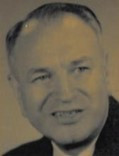
Elmer G. Sulzer established broadcast departments and teaching curricula at the University of Kentucky and Indiana University. He built studios and began broadcasting radio programs from UK in 1929, using facilities of WHAS. Sulzer later fed UK-originated programs at WLAP, as well as Mutual and CBS radio networks. He established the first university-owned radio station in U.S. at UK. He additionally, founded the UK Publicity Bureau in 1929. He attracted international attention by starting “listening centers” in Eastern Kentucky to provide residents with broadcast service. Sulzer won a George Foster Peabody Award in 1942 for a series on venereal disease, a program which caused great controversy. He started his career at UK as a music instructor and director of bands. Sulzer left UK in 1952 to head the broadcast department at IU. He was an internationally respected authority on abandoned railroads; and is the author of several railroad books, including Ghost Railroads of Kentucky. Elmer G. Sulzer died on February 15, 1976.
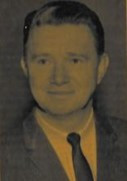
Henry Ward is a reporter, editor, publisher, and public administrator. He started his journalism career as cub reporter for the Paducah News Democrat in 1928, later the Paducah Sun Democrat. He served as city editor from 1935 to 1942, when he was named associate editor. He is active in Paducah civic affairs. Ward was a member of the Kentucky House of Representatives between 1934 and 1942; as well as Kentucky State Senate between 1946 and 1948. He left the Paducah paper in 1948 to become State Commissioner of Conservation; he expanded the Kentucky state park system and tourism program. Ward later served as state Commissioner of Highways and became the Democratic nominee for governor in 1967. He is a strong supporter of the watchdog role of press in government, he represented the interests of the press in the Kentucky legislature. Ward became publisher of the Paducah Sun Democrat in 1968; he also served as president of the Kentucky Independent College Foundation and chairman of the Louisville Riverfront Commission. He has provided significant contribution to Kentucky journalism centered on the guidance, counsel and training given to a large number of younger Kentucky journalists throughout his journalistic and public career.
1982
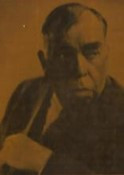
Irvin S. Cobb was a noted reporter, author, and humorist. Native to Paducah, Cobb started his journalistic career on the Paducah Daily News at age 17; he became the nation's youngest managing editor at 19. Cobb later worked for the Cincinnati Post and the Louisville Evening Post. He was the first reporter to reach the side of Governor William Goebel after his assassination in Frankfort in 1900. He called his story on the shooting of Goebel his “finest piece of reporting.” At age 28, he went to New York, working for several newspapers there; he began writing a humorous column. Cobb later turned to magazine writing, covering World War I for the Saturday Evening Post. He was a gifted after-dinner speaker and teller of tales; a close friend of Will Rogers and even co-stared in movies with him. He estimated that he wrote 60 books and even tried his hand unsuccessfully at writing drama and musical reviews. Cobb received the Legion of Honor from France, honorary degrees from two universities, and had parks, drinks, public works, a bridge, hotels and an apartment building named after him. Irvin S. Cobb died on March 10, 1944.
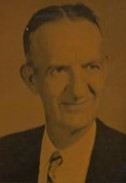
John L. Crawford was a publisher emeritus for the Corbin Times-Tribune; he was publisher between 1928 and 1980. Crawford continues to write his column, "Ravelings," which has received many awards. He was born in 1897 in Gamaliel, Kentucky, where he later worked as an assistant bank cashier. Cobb started his newspaper career as a reporter for Nashville Banner in 1926; he later worked at Hazard Leader and as editor of Whitesburg Mountain Eagle. Crawford served as President of Kentucky Press Association in 1936 and received the Edwards M. Templin Memorial Award for outstanding community service in 1974. He is a graduate of the University of Kentucky, and he received the distinguished journalism alumni award in 1975. Crawford was President of the First National Bank of Corbin and is the former president of the Corbin Chamber of Commerce and Kiwanis Club. He founded and led local industrial commission. Crawford is active in civic affairs.
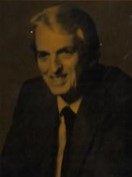
Billy Davis is the former director of photography for the Courier-Journal and the Louisville Times. He served in the photography department for 43 years, and over 30 years as director. Davis is best known for striking aerial photographs of Kentucky and southern Indiana. One of Davis' aerial pictures, "Flood in the Mountains," won seven major professional awards and was on exhibition at The Hague and at the 1964 World's Fair. Under his direction, the Courier-Journal and the Louisville Times photography department earned a national reputation for excellence. He took his first aerial view of Louisville during the 1937 flood while working for the Associated Press and the Chattanooga News. His photographs were published in a book, Over Kentucky - 40 Years of Aerial Photography, published in 1981. Davis’ photos have appeared in national publications. He is the winner of numerous photo awards. He served in World War II as a personal photographer to Admiral C. Turner Joy.
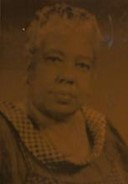
Alice Allison Dunnigan was chief of the Washington Bureau of the Associated Negro Press, between 1947 and 1961. She was the first Black woman to receive accreditation to the Senate and House of Representatives press galleries, the first to hold a White House press pass, and the first to become a member of the State Department Correspondents Association. Her articles have appeared in 112 weekly newspapers throughout United States and abroad. She was decorated by the President of Haiti for reporting and received more than 50 awards for outstanding achievement in journalism and community service. Dunnigan held appointments from President John F. Kennedy and President Lyndon Johnson to work in areas of equal opportunity and youth opportunity. Native of Russellville, Dunnigan taught school in Logan and Todd counties and first worked for the Owensboro Enterprise and the Louisville Defender before moving to Washington in 1942.
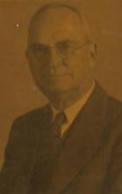
Russell Dyche was the editor of the Sentinel-Echo in London for 50 years. He was born in 1884 over the office where his father operated the London Mountain Eagle. Dyche started in the newspaper business after only a year in high school. He later graduated from National Normal University in Ohio in 1907. Dyche returned to London and again entered the newspaper business. He fought for all-weather roads around London; he used his own money to set up adequate fire protection and purchase fire hydrants. Dyche was instrumental in the creation of Levi Jackson State Park near London. As director of state parks during administration of Governor Simeon S. Willis, Dyche donated part of his salary to improve the park. As an ardent conservationist and historian, Dyche was inaugurated into the Laurel County Homecoming and was active in numerous civic efforts. Dyche is an active Republican, and he was former president of the First National Bank of London and the Kentucky Press Association. Russell Dyche died on November 17, 1959.
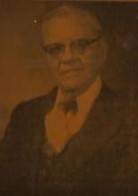
Lawrence W. Hager was the founder and chairman of the boards of Owensboro Publishing Co. and Owensboro Broadcasting Co. He moved to Owensboro in 1910 after receiving a Master of Arts from Centre College at age 20. Over the next 70 years, education, health, transportation, politics, charity and civic groups were influenced by Hager and the newspaper he headed. Hager founded the Goodfellows Club, which has provided Christmas parties for thousands of underprivileged children since 1916. He is active in state Democratic politics. Hager consolidated Owensboro's two newspapers in 1929 and started WOMI, city's first radio station. His first newspaper job was as a reporter for Frankfort State Journal. He became President of the Kentucky Press Association in 1933 and received the association's award for "community service through journalism," in 1970. Hager helped establish Owensboro-Daviess County Chamber of Commerce and Owensboro Rotary Club. He holds an honorary degree from Kentucky Wesleyan College.
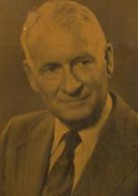
Henry H. Hornsby is the former editor of the Lexington Leader. He spent his entire newspaper career on the Lexington newspapers, first joining the Lexington Leader as a correspondent in 1938, and later became a reporter, sports editor, city editor and executive editor. He was also farm editor of the Lexington Herald. Hornsby was selected as a Neiman Fellow at Harvard in 1946. He wrote columns for the Sunday Herald-Leader and the Lexington Leader. Hornsby wrote a novel, Lonesome Valley, which was published in 1949. He won fellowships to the annual Bread Loaf Writers Conference at Middlebury College, Vermont, in 1947 and 1948. Hornsby was honored as distinguished alumnus of the University of Kentucky School of Journalism in 1974. A native of Clay County, he never lost his love for the mountains, the outdoors and gardening. He was appointed to the Fayette County Purgation Board in 1951.
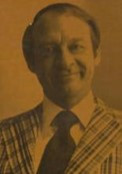
Cawood Ledford was a sportscaster and sports director for WHAS radio and television for 22 years. He was named Kentucky Sportscaster of the Year seven times. Native of Cawood in Harlan County, Ledford graduated from Centre College. He started his broadcast career announcing sports for radio station WHLN in Harlan; he later joined WLEX in Lexington. In 1956, Ledford joined the sports staff of WHAS where he became sports director two years later. Ledford is a Marine Corps veteran of World War II. He formed his own radio-television production company in 1979, called the “Voice of UK Sports,” ; he is also recognized as an outstanding horse racing announcer. He was honored in 1978, during halftime ceremonies at Rupp Arena, for 25 years of broadcasting UK games.
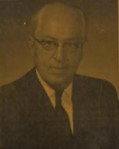
Niel Plummer directed journalism education at the University of Kentucky from 1940 to 1965. He joined UK as part-time journalism instructor in 1929 and became a full faculty member a year later. Plummer received a Master of Arts from UK in 1932 and a Ph.D. in 1940 from University of Wisconsin. Plummer was named to a full professorship and made head of the journalism department in 1940, having previously served as acting director. He is largely responsible for completion of a new journalism building, financed by profits from operations of the Kernel Press in 1951. He held authority on etymology and law of the press. Plummer was a reporter, state editor and city editor of the Lexington Herald; he also worked for International News Service. He directed student publications and managed printing operations at UK. Plummer received Kentucky Press Association’s first President’s Cup for outstanding service in 1959. He is a contributing author of two books.
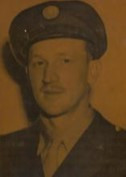
Don Whitehead is a Pulitzer Prize-winning war correspondent for the Associated Press. He is cited for his first-hand coverage under fire of the Marine crossing of the Han River during the Korean War. As one of three newsmen accompanying President-elect Eisenhower on a secret trip to Korea in 1952, he won his second Pulitzer Prize. Whitehead covered World War II in North Africa and in Europe and landed with the first assault troops in France on D-Day. He was the first reporter to enter Paris before its capture by the Allies. Whitehead was awarded the Medal of Freedom by the U.S. Army for achievement as a war correspondent; he also received a Polk Award for distinguished reporting. Whitehead covered domestic events and politics for the Associated Press. He also wrote five books. Born at the Kentucky-Virginia border, Whitehead spent his boyhood in Harlan. He attended the University of Kentucky and was awarded an honorary degree in 1948. Whitehead received early newspaper experience on the Harlan Daily Enterprise and the Knoxville Journal. He was later Washington bureau chief of the New York Herald-Tribune. Don Whitehead died on January 12, 1981.
1981
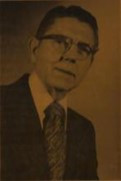
Barney Arnold was a farm director of WHAS, Inc., between 1952 and 1978. He received Kentucky Farm Bureau’s communications award three times and also received the National Farm-City award for the “creative dramatization of the interdependence of farm and city.” The Commonwealth of Kentucky, Indiana Farmer’s Union, Future Farmers of America, Mid-South Fair and the Hoosier Cooperative Clinic have recognized him for his role in the area’s agricultural community. Arnold traveled over 20,000 miles a year to gather first-hand reports for WHAS Radio and Television. He served as information specialist with the USDA War Board during World War II and later became farm director of KVOO in Tulsa. Arnold is the former vice president of National Association of Farm Broadcasters.
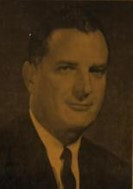
William B. Arthur is executive director of the National News Council, formed in 1973 to consider complaints of the inaccuracy or unfairness of news disseminated by national news organizations and to deal with complaints from the media of attempts to restrict freedom of news-gathering. He was also former editor, managing editor and assistant managing editor of Look magazine. Arthur served as chief of the press branch of the war Department Bureau of Public Relations during World War II; he was discharged as an Army lieutenant colonel and received Legion of Merit. Arthur started his journalism career as a sports writer. He was later a reporter, copy editor and assistant sports editor of the Courier-Journal. Arthur received an honorary degree and distinguished alumni award from the University of Kentucky. He is the former president of Sigma Delta Chi. Arthur is active in professional, civic, community and religious organizations.
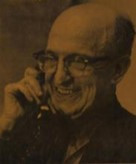
Clay Wade bailey was a veteran Frankfort reporter for various newspapers, covering events in the state capital for 46 years. He knew every Kentucky governor or governor-to-be from J.C.W. Beckham to John Y. Brown, Jr. Bailey started his journalism career in 1927 as assistant to chief of the Courier-Journal’s Frankfort bureau, uncovering numerous scandals in state government. He served as reporter and columnist for the Kentucky Post. Bailey was manager of the Frankfort bureau of United Press and correspondent for the Lexington Herald and the Lexington Leader. He was named state director of publicity in 1948 and returned to newspaper work eight years later. Bailey had an uncanny photographic memory and the ability to read government documents upside down which he saw on officials’ desks. The bridge over the Ohio River at Covington was named in his honor. Clay Wade Bailey died on February 19, 1974.
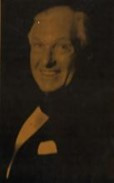
Barry Bingham, Sr. guided the Courier-Journal and the Louisville Times to greater national prominence starting in 1937 when he succeeded his father as chief officer of the newspaper company. Under his leadership, the papers received six Pulitzer Prizes and numerous other national awards, including rankings in the top 10 newspapers of America. He established WHAS-TV and built Standard Gravure Corporation as printer of Sunday newspaper magazines. Bingham served 39 months overseas as U.S. Navy officer during World War II; he received a Bronze Star twice. Bingham made study missions to Europe to report on occupation conditions; he was given rank of Commandeur, Legion d’Honneur, by French government for service. He was the Fulbright lecturer at Oxford, England, in 1955. Bingham was Commander of the Order of the British Empire. He holds honorary degrees from eight colleges and universities. Bingham has been twice elected overseer of Harvard University. He was chairman for the American Press Institute advisory board from 1962 to 1968. He was apart of the Advisory Board for Pulitzer Prizes between 1956 and 1968. Bingham was also Honorary President of Sigma Delta Chi, from 1956 to 1957 and Chairman of International Press Institute from 1964 to 1966. He is a strong supporter of human rights, conservation and enrichment of arts. He is now chairman of the board of family companies.
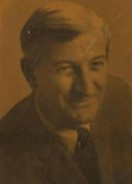
Joe Creason was a sports reporter, feature writer and columnist for the Courier-Journal from 1941 to 1974. He was editor of the Benton Tribune-Democrat and Murray Ledger & Times before joining the Courier-Journal. Creason traveled hundreds of thousands of miles through every county in Kentucky in search of material for feature stories and his popular column, “Joe Creason’s Kentucky,” which were collected into two books and a record album. As an avid historian, Creason coordinated the writing of “The Civil War in Kentucky,” the first newspaper supplement to win the National Civil War Centennial Commission’s award of Distinction in 1960. He was president of the University of Kentucky Alumni Association and the Kentucky Tennis Patrons Foundation. Creason was hailed by Jesse Stuart as a “goodwill ambassador” for his newspaper and for Kentucky. Joe Creason died on August 14, 1974.
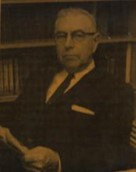
Herndon J. Evans was editor of the Lexington Herald from 1956 to 1967. For 32 years, he was editor and publisher of the Pineville Sun. Evans previously worked as state editor of the Courier-Journal, and for the State Journal and the Associated Press in Frankfort. As an ardent conservationist, Evans fought for the preservation of the Cumberland Falls area as a state park. He was president of the Kentucky Mountain Laurel Festival and served as U.S. Court Commissioner for the Eastern District of Kentucky. He promoted the Kentucky state park system through his editorials in Pineville and Lexington and was a member of the State Parks Board. Evans is a past president of the Kentucky Press Association. He is active in Democratic politics in Kentucky. Evans was a member of the University of Kentucky Board of Trustees. In 1967, he received the Governor’s Award of Merit. Evans is the author of The Newspaper Press in Kentucky (1976). Herndon J. Evans died on February 26, 1976.
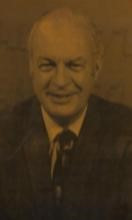
Livingston Gilbert was a newscaster and anchorman for WAVE radio and television for almost 40 years. He started as an announcer with WAVE radio in 1941. When WAVE-TV went on the air, Gilbert began a dual radio-television career. His first television newscast was in 1948. Gilbert remained sole newscaster on WAVE-TV until 1972 when he worked with his first partner on the news show. He spent his entire career at WAVE, and never apologized for the fact that he was not a writer or a journalist, but a deliverer of the news. Gilbert’s distinguished career was unmatched for longevity by any other local broadcaster in the country. During his final broadcast at the end of 1980, he said he hoped he would be remembered for his “integrity.” Gilbert spent three days a week reading books for the American Printing House for the Blind. Livingston Gilbert died on February 7, 1981.
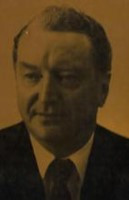
Julian Goodman is the former chairman of the board and chief executive officer for the National Broadcasting Company. A native of Glasgow, Goodman attended Western Kentucky State College before graduating from George Washington University. He started working for NBC while in school, first as a news writer for WRC in Washington. He held various editorial and executive posts at NBC until he was named executive vice president in October 1965. Two months later, Goodman became NBC’s chief administrative officer and three months after that he was elected president, a post he held until 1974. Goodman is a strong advocate of freedom of broadcasting, he initiated several major innovations at NBC. He holds the distinguished alumnus award from the American Association of State Colleges and Universities. Goodman received the National Association of Broadcasters highest award for “leadership in advancing and protecting the concepts of free broadcasting.”
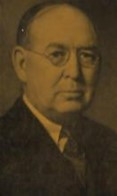
Enoch Grehan founded the University of Kentucky Department of Journalism in 1914 and served as its head until 1937. Under his direction, the department became one of the nation’s pioneers in the field of professional journalism instruction. The journalism department grew from a small beginning to become one of 32 Class A departments in the nation. Through personal loans, Grehan was instrumental in aiding the students in the acquisition of a student-owned and operated newspaper plant. He started his career on the Lexington Press and later became city editor of the Lexington Herald, news editor of the Lexington Leader, and editor of the Lexington Evening Gazette. It is estimated that he wrote 60,000 editorials and editorial comments during his career. Grehan is a pioneer in his field and a national leader in the area of journalism education at the college level. Enoch Grehan died on December 12, 1937.
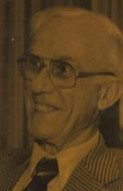
L. J. Hortin is the founder of the journalism education program at Murray State College in 1928, and served as chairman of the department for 19 years. He was director and professor of the School of Journalism at Ohio University between 1947 and 1967, building one of the five largest journalism programs in the United States. He returned to Murray State University in 1967, and served as director of journalism until his retirement in 1974. At Murray, Hortin established a major’s program and a master’s program in journalism. He formerly worked for the St. Louis Post Dispatch, the Associated Press, United Press and the Murray Ledger & Times. As a civic and community leader, Hortin was a strong advocate of TVA. He received the distinguished service to journalism award from the Ohio Newspaper Association in 1967 and the distinguished alumnus award from Murray State in 1976. He holds two honorary literary degrees. Hortin was editor and publisher for George Joplin, Jr. of the Somerset Commonwealthbetween 1925 and 1957. He started his newspaper career while a student at Centre College. Hortin served as editor of Danville Daily Messenger and sports editor of the Lexington Leader. His Somerset paper received more than 75 awards for journalistic excellence. He is past president of the Kentucky Press Association. He was state and national correspondent for Centre College athletic teams; and named them the “Praying Colonels.” Hortin served on Centre’s board of trustees. He was active in state and editor of In Kentucky magazine in 1946. He was president of Somerset Chamber of Commerce and active in numerous civic projects. Hortin is an avid conservationist and promoter of state parks and tourist industry in Kentucky. He brought his paper to a position of influence and distinction. L.J. Hortin died on April 2, 1957.
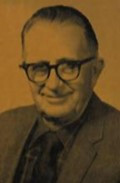
Nevyle Shackelford was connected with writing for most of his life. He sold his first story at the age of 16 for $6. He was the former editor of The Beattyville Enterprise and worked for the Cincinnati Post and The London Sentinel-Echo. He was the author of the book Romance of Lee County and wrote for several magazines. He was best known for his work on folklore and legends on plants. He wrote weekly columns “Short Rows” and “Outdoor Lore” for many years for the University of Kentucky College of Agriculture and was named Agriculture Man of the Year by the Kentucky Farm Journal in 1980. He also taught school for 12 years in Eastern Kentucky. Nevyle Shakelford died on March 11, 1999.
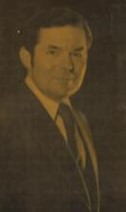
Albert P. Smith, jr., president of Al Smith Communications, Inc., operated weekly newspapers in Russellville, Leitchfield, Morgantown and Cadiz, Ky., and in Brentwood, Tenn. He was named co-chairman of the Appalachian Regional Commission in Washington in 1979. Smith was producer and moderator of the weekly Kentucky Educational Television program, "Comment on Kentucky," between 1974 and 1979. He was named Distinguished Broadcast Journalist by Western Kentucky University in 1978. He wrote and produced numerous award-winning documentaries for KET. Smith was recognized for newspaper editorial writing. He started his journalism career in New Orleans and served as state editor of the New Orleans Times-Picayune. He is an avid conservationist and historian. He is former chairman of the Kentucky Arts Commission and Kentucky Oral History Commission. Smith is past president of the Kentucky Press Association. He won American Legion national oratorical at age 15. He is a civic and community leader.
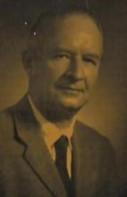
Enos Swain is a former editor and general manager of the Danville Advocate-Messenger. He began his newspaper career with the Danville Daily Messenger while a student at Centre College. He later worked for the Harrodsburg Herald and the Harrodsburg Democrat, and served as associate editor of the Somerset Commonwealth. Swain was alumni secretary and director of publicity at Centre College; and was later named to the board of trustees and president of the alumni association. He is a noted historian, author and raconteur. He is long active in the Republican Party and was member and chairman of State Personnel Board during administration of Governor Louie Nunn. Swain is former president of the Kentucky Historical Society, Kentucky Press Association, and Danville-Boyle County Chamber of Commerce. He is a strong advocate for press rights.
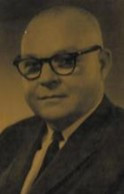
Edwards M. Templin was promotion director of the Lexington Herald-Leader Co. between 1944 and 1967. He started work as a reporter on the Lexington Herald in 1929; he later became city editor and worked for the Lexington Leader. He was president of the National Newspaper Promotion Association in 1957; and later became president of NNPA's Southern Region. He received the association's highest award in 1962. American Newspaper Publishers Association gave him the distinguished service award in 1957. He was named the most valuable member of the Kentucky Press Association in 1963. He was president-elect of KPA at time of his death. He served as Kentucky chairman of Sigma Delta Chi. Templin was active in numerous civic and charitable organizations and even cited by American Red Cross for aid to flood victims in 1957. He was prominent in various Republican political campaigns. He served as president of the Lexington-Fayette County Chamber of Commerce. Edwards M. Templin died on January 3, 1967.
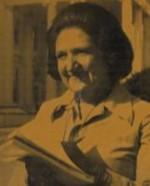
Helen Thomas is White House bureau chief for United Press International and has reported the activities of Presidents and First Ladies since 1960. She is the first woman to head up the Presidential coverage of a major news service. She was senior staff member of UPI at White House. She traveled extensively with Presidents Kennedy, Johnson and Nixon; and accompanied the latter on summit trips to China and Soviet Union. She went with Secretary of State Kissinger to the Middle East and China and with President Ford to China. Thomas was elected president of the White House Correspondents Association in 1975, the first woman to hold that office. She was also the first woman elected to the historic Gridiron Club in its 96-year history. She received the Distinguished Achievement Award for newspaper journalism presented by journalism alumni of University of Southern California. Author of Dateline: White House, a book published in 1975 about life at 1600 Pennsylvania Avenue. She is a native of Winchester. She started her journalism career as a reporter for the Washington Daily News and joined UPI a year later as a radio writer, then transferred to national staff in 1956.
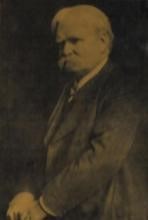
Henry Watterson was editor of the Courier-Journal from 1868 to 1919. He established the Courier-Journal both in fact and reputation and made the paper a respected voice throughout the nation but especially in the South. Colorful but powerful, Watterson was a master editorial writer--the last of the great personal journalists. At age 78, he won the Pulitzer Prize in 1918 for two editorials supporting American entry into World War I. He coined the phrase during World War I, "To Hell with the Hapsburgs and the Hophenzollerns." He was once criticized for attacking his beloved Democratic Party, Watterson replied editorially, "Things have come to a hell of a pass when a man can't wallop his own jackass." The fiery, colorful, charming, infuriating editor knew every president and president-to-be from John Quincy Adams to Franklin D. Roosevelt and took an active part in 11 presidential campaigns. Henry Watterson died on December 22, 1921.